Acute Gastroenteritis Surveillance to support early detection of cholera outbreak in Mpulungu district, Northern province
On 18th September, 2025, the Ministry of Health in Zambia officially announced the outbreak of cholera in Mpulungu district, Northern province.
To contain this outbreak to a minimum in the affected area, timely and prompt confirmation of Vibrio cholerae (V. cholerae) infection by laboratory tests is key. However, this can be challenging in some regions due to various reasons. In some provincial areas, stool samples have to be transported to large hospitals, sometimes several hundred kilometers away, for testing and diagnosis, which certainly resulted in the delay of detection of and response to the ongoing cholera outbreak.
Facing such a situation, Japan International Cooperation Agency (JICA) and Zambia Public Health Institute (ZNPHI) launched a new initiative called “Acute Gastroenteritis Surveillance” (AGE Surveillance) in October, 2023, through “the Project for Strengthening Laboratory-based Surveillance for Infectious Diseases (the Project)”. The Mpulungu Urban Clinic, a public clinic under the Mpulungu District Health Office (DHO) has been one of five sentinel surveillance sites of the AGE surveillance system since February, 2024. Dr. IMAMURA Tadatsugu, Chief Advisor of the Project and staff of Zambia National Public Health Reference Laboratory (ZNPHRL) have continuously visited the Clinic to strengthen the laboratory-based surveillance system, especially of cholera, as the district and surrounding areas have faced persistent threats of cholera outbreaks. The Clinic, in collaboration with DHO, has strengthened the activities such as, the increase in stool sample collection from the suspected patients, the facilitation of proper and safe sample storage and transportation, as well as the improvement of the reliability of laboratory testing by bacterial culture methods in the Mpulungu Urban Clinic.
After such continuing effort and capacity building, the Mpulungu Urban Clinic and DHO have successfully identified suspected cases of cholera this time from the stool samples collected and transported from one of the lakeshore facilities to Mpulungu Urban Clinic. As the clinic was able to test and diagnose the cholera by bacterial culture, the transport of stool samples to the provincial capital, Kasama, about 200 km away from Mpulungu was not necessary, which enabled health authorities to rapidly detect the cholera outbreak and to dispatch response team.
JICA, through the Project, continues to support the effort to strengthen the resilience against public health crises in Zambia.
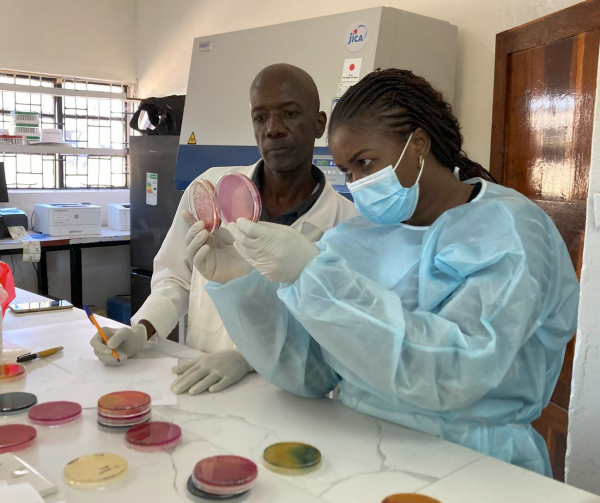
The AGE Surveillance initiative before the outbreak: Laboratory staffs of ZNPHRL and Mpulungu Urban Clinic are conducting an on-site training on the bacterial culture for stool samples.
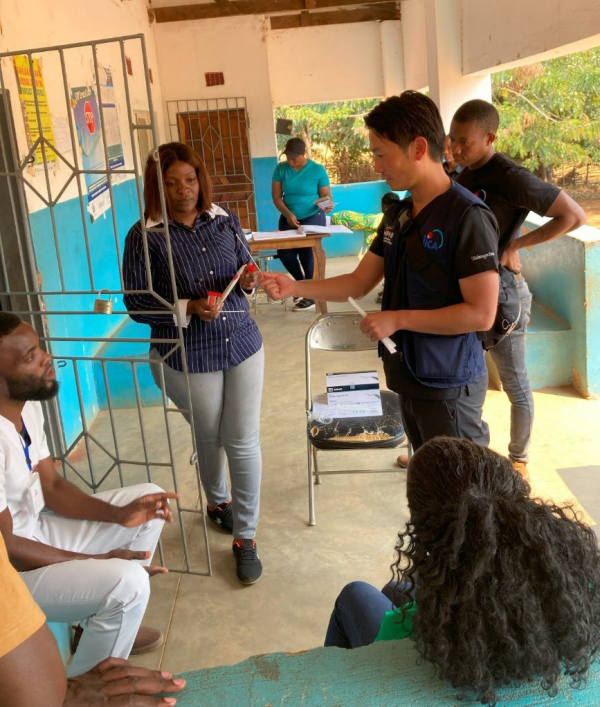
Support for Response to on-going cholera outbreak: Dr. IMAMURA, Chief advisor of the Project and ZNPHRL staff orienting the sample collection, storage, and transportation in Lakeshore Health Facility.
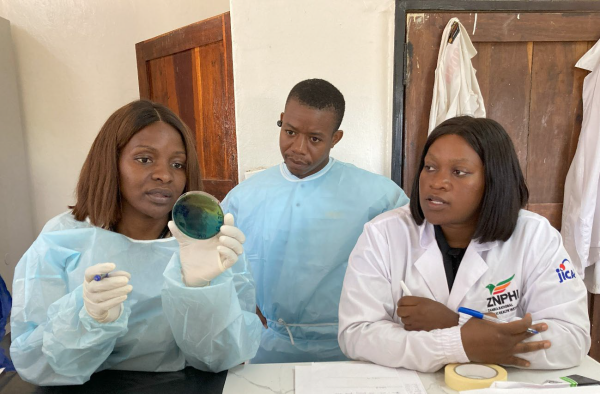
Staffs of ZNPHRL and Mpulungu Urban Clinic working together for the confirmation of V. cholerae
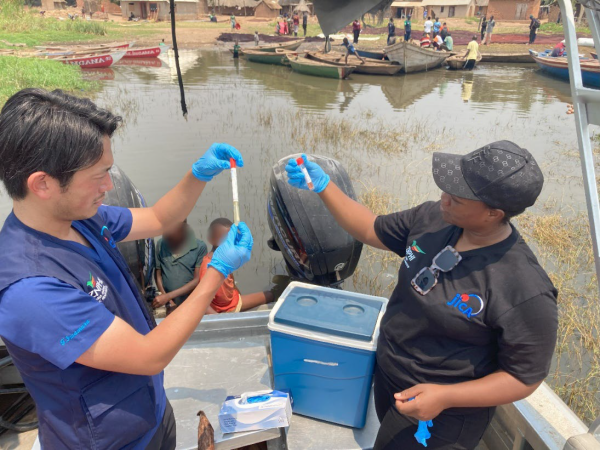
Dr. IMAMURA and Mpulungu Urban Clinic laboratory staff check stool samples collected from cholera treatment centers along the Tanganyika lakeshore area.
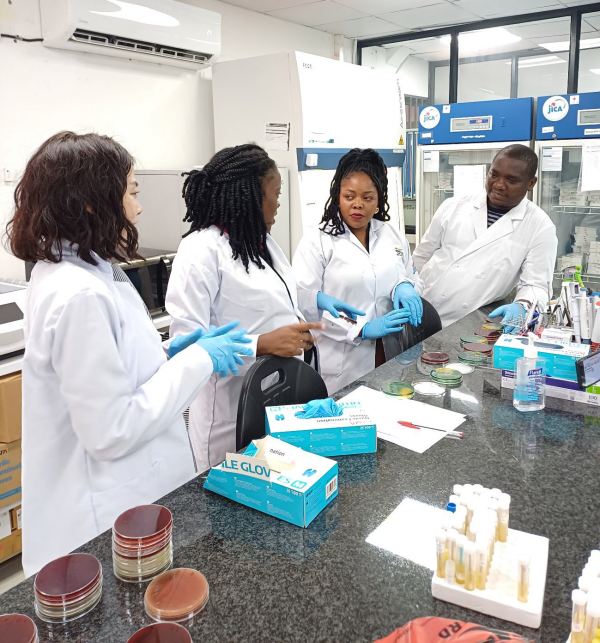
For effective AGE Surveillance system: ZNPHRL staffs to verify the protocol of the stool culture taking into account the quality management, to ensure reliability of the tests
